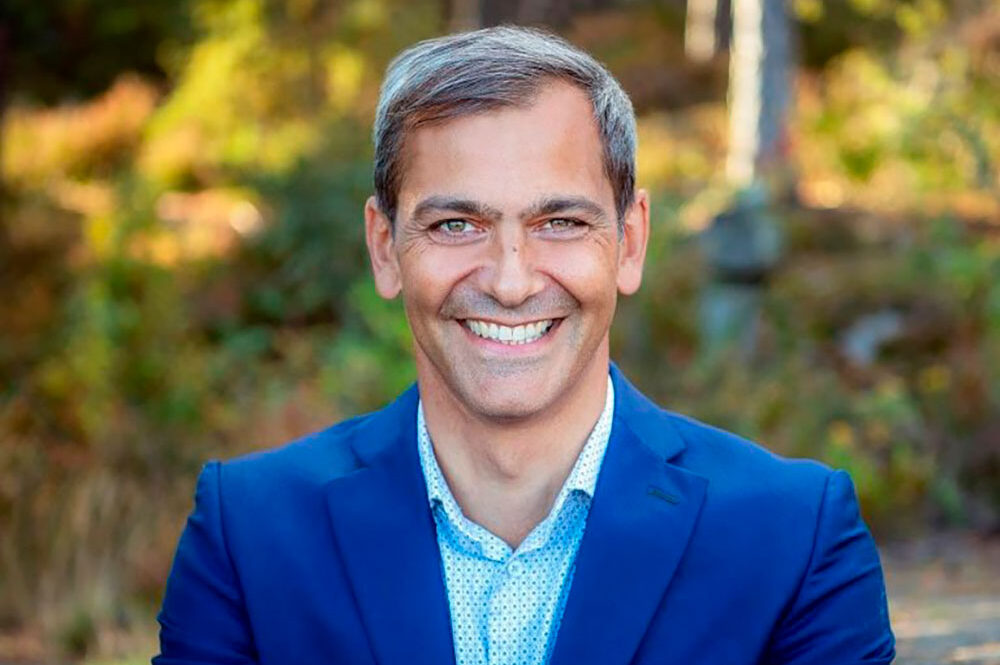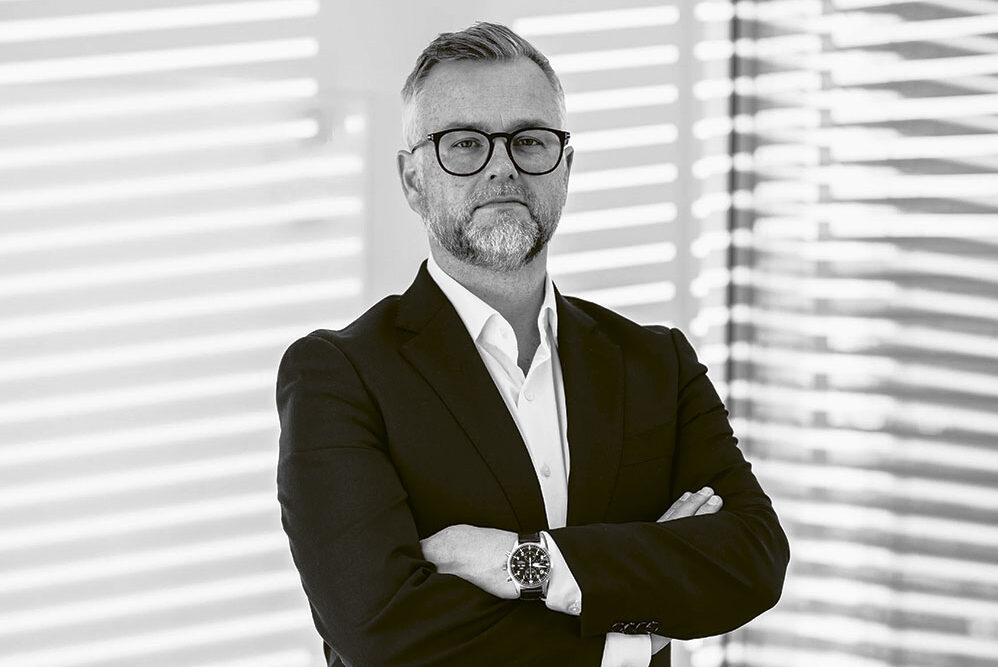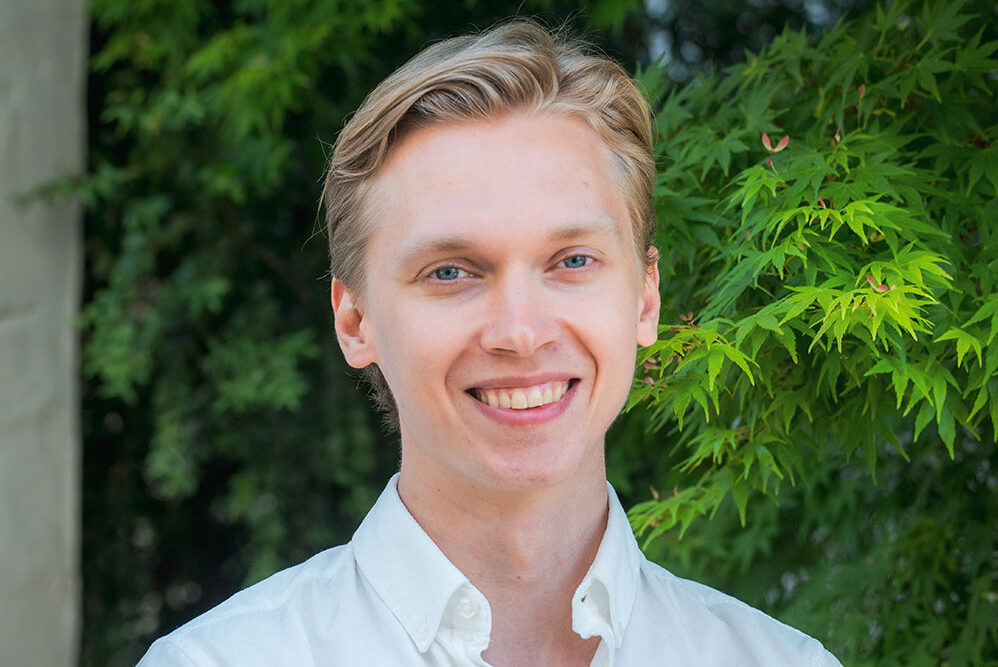Kristofer Klerfalk: Building stamina to walk the startup miles
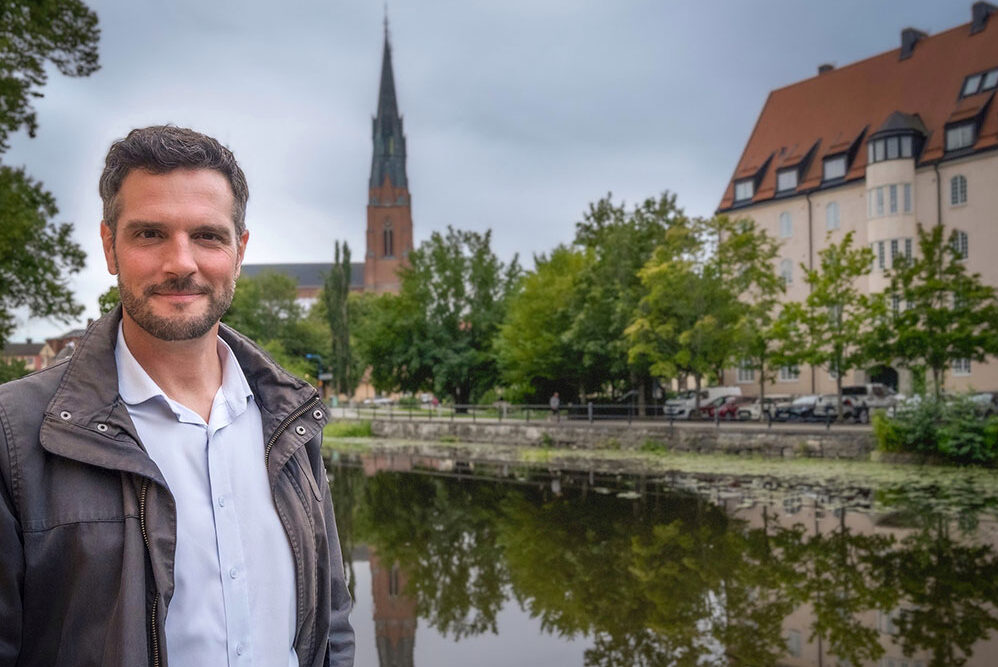
Life science entrepreneur, investor, and baritone tenor Kristofer Klerfalk is a man with many hats and a vision for a pan-Nordic life science ecosystem.
One of Kristofer Klerfalk’s many roles is as co-founder and CEO of some of the investment funds within Life Science Invest (LSI), which invests in Nordic life science and medtech startups. But a glimpse at his resumé reveals that he’s affiliated with 15 or so companies and organizations – in some as a board member, in others as co-owner, and a few as co-founder.
I think I might be the definition of ‘multitasking’. It’s really stimulating for my brain to swap between different tasks.
And, lest we forget, he’s also a survival instructor in the Swedish Armed Forces – an assignment he carries out for a few weeks every year. Did we mention he’s also a singer in Uppsala’s renowned male choir, Orphei Drängar, founded in 1853? Quality time with his family and an exercise regimen consisting of running, biking, and strength training are also high priorities for the Uppsala-based father-of-two.
When asked how he would describe himself, he jokes: “I think I might be the definition of ‘multitasking’. It’s really stimulating for my brain to swap between different tasks – from one moment to the next, often I pick up a musical score and I sing for five minutes at the office – and then I continue with some other task. It activates new paths in my brain. I’ve turned high activity into productivity.”
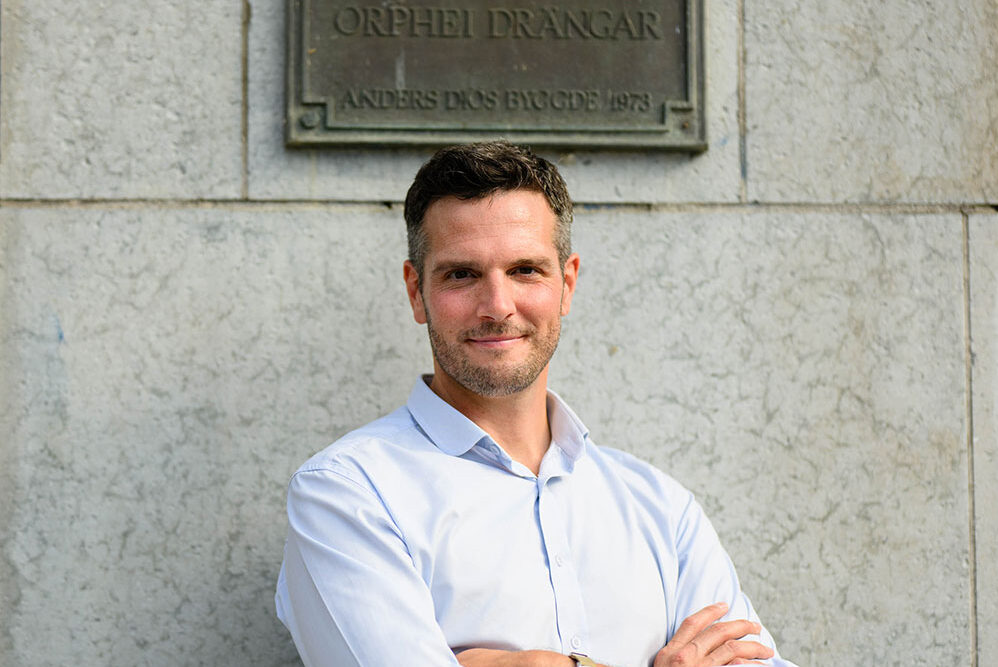
A dual perspective
Klerfalk’s interest in life sciences was sparked already in his teenage years, when a friend’s relative who worked at AstraZeneca waxed lyrical about his involvement in bringing the company’s biggest blockbuster Lozec to market. The seed that was planted during that conversation eventually led Klerfalk to pursue an M.Sc. in Pharmacy at Uppsala University and become a licensed pharmacist.
While still a student, he co-founded his first company Pharmademic.
His entrepreneurial spirit was evident already then. While still a student, he co-founded his first company Pharmademic – a staffing company that provided pharma companies with pharmacy students looking for work alongside their education.
With the dual perspective of having launched several companies and being an angel investor, Klerfalk has a clear view of what’s needed for a startup to succeed on their journey to market.
“Swedish biotech and medtech startups are often really great at the science and the academic part, but the commercialization of a product or a pharmaceutical is a different game,” he says, and continues: “We have found that competence and experience of commercialization in the specific area where the company is active is key. At Life Science Invest, we aim to provide an investment lead who has made the journey in the same space the company is active in.”
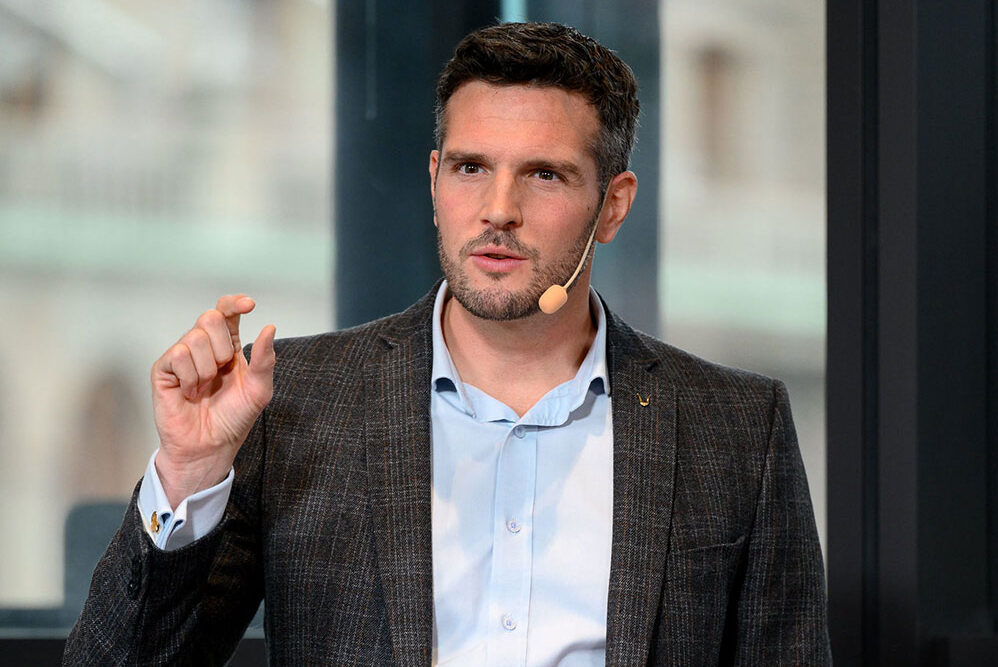
The companies that LSI invests in don’t only receive money, Klerfalk explains. They get a mentor who has experience in overcoming the obstacles that the company will face, for example, someone who has also taken a medtech product to the US and gone through an exit.
I try to also investigate if the founders have the capacity, mindset, and stamina to make the journey – because it’s really hard work for a couple of years.
But there’s more to the magic formula than good science and access to the right experience. What makes or breaks a startup company is the people who run it.
“A lot of companies have great science and the foundation is there. I try to also investigate if the founders have the capacity, mindset, and stamina to make the journey – because it’s really hard work for a couple of years. It often comes down to whether you have the stamina to walk all those miles,” he says.
Work-life balance
Klerfalk speaks extensively about stamina and the need for rest and recuperation. As an entrepreneur and investor with a packed professional and personal life, he keeps his work–life balance front and center. When assessing whether an entrepreneur he is considering investing in has what it takes to make the long and demanding startup journey, Klerfalk also looks at their personal life.
If you meet an entrepreneur who only works and has no fun, it’s a really bad sign.
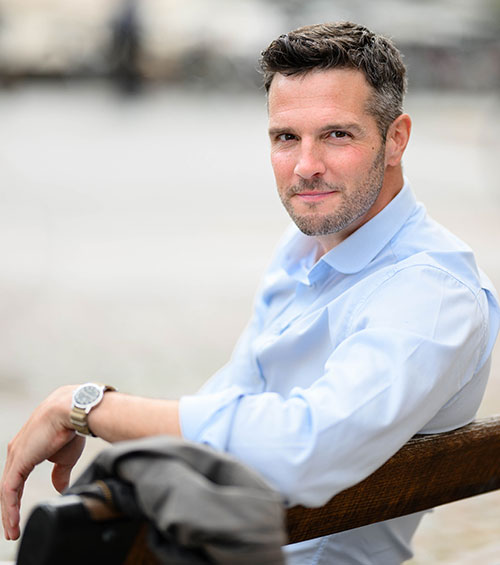
“If you find an organized and calm environment around the entrepreneur, that’s really beneficial because it will be stormy at work,” he says. “I work extremely hard, but I take a lot of time off. It’s about being effective when you work – and you won’t have the stamina if you don’t have the work–life balance. That’s really key: if you meet an entrepreneur who only works and has no fun, it’s a really bad sign. But if they coach volleyball in their spare time or are involved in something else, then that’s a really good way for them to switch off from work for a while – I think that’s healthy.”
A pan-Nordic approach
When asked what he sees as the next exciting thing in Swedish life sciences, Klerfalk immediately points to the greater potential that a pan-Nordic approach – rather than a national one – has to offer the sector.
“In the past two years I’ve seen a clear path and opportunity to form a pan-Nordic life science ecosystem. I now spend a lot of time making that happen. We, and many other great organizations out there, are working towards this, and that really makes me tick,” he says.
If we can talk about the Nordics as one region instead, that could really elevate us on the global agenda.
“A Finnish entrepreneur told me: ‘we are great at building stuff, but we can’t do marketing’, and then he said: ‘but Denmark can sell anything’. That’s one part of it,” Klerfalk says when contemplating the many advantages of a unified Nordic ecosystem.
He further recalls: “When I was in Japan, they talked a lot about the Nordics, but we talk ourselves about Norway, Sweden, Denmark, and so on – and it doesn’t really stick internationally. If we can talk about the Nordics as one region instead, that could really elevate us on the global agenda.”
“At LSI, we clearly see the wealth of expertise and capital available across the Nordic region. By collaborating and supporting one another, we can enable life science companies to flourish even more throughout the Nordics,” Klerfalk concludes.
Published: November 9, 2025



